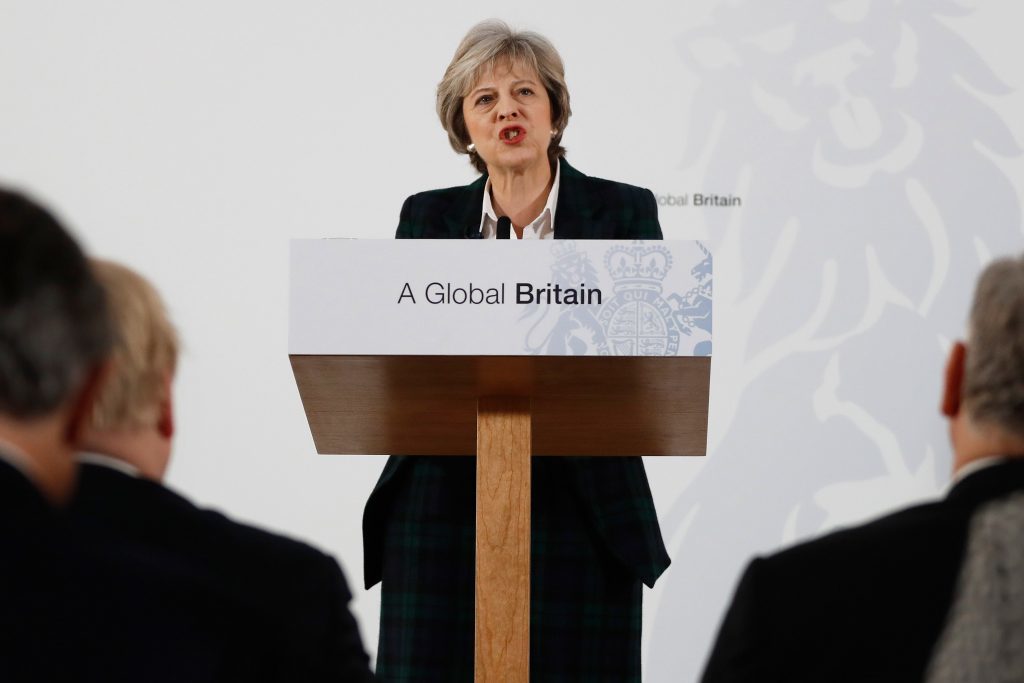
Theresa May will launch her industrial strategy for post-Brexit Britain on Monday with a promise the Government will “step up” and take an active role in backing business.
Central to the Prime Minister’s plans will be new “sector deals” and “major” investment in research and development to support the “industries of the future” and create more high-skilled, high-paid jobs.
Mrs May will tell her first regional Cabinet meeting, in the north-west, that to succeed after leaving the European Union the UK needs a strategy to create a group of new industries to challenge the companies of today.
Ahead of the meeting, the PM said: “The modern industrial strategy will back Britain for the long term: creating the conditions where successful businesses can emerge and grow, and backing them to invest in the long-term future of our country.
“It will be underpinned by a new approach to government, not just stepping back but stepping up to a new, active role that backs business and ensures more people in all corners of the country share in the benefits of its success.”
The sector deals will be driven by firms and their employees to address challenges specific to their industry, and the Government is prepared to offer support including:
:: changing regulations to remove barriers to innovation
:: using trade and investment deals to increase exports
:: helping to create new institutions to provide leadership, support innovation and boost skills
Industry leaders are carrying out work on early sector deals in life sciences, the transition to ultra-low emission vehicles, industrial digitalisation, creative industries and improving competitiveness and skills in the nuclear industry.
But the Government is prepared to work with any sector that can unite behind strong leadership to address shared challenges.
The industrial strategy Green Paper, which will be subject to consultation before ministers return with more specific proposals, also sets out ideas to bolster institutions in each part of the country to support that region’s specific strength.
That could involve building up local trade bodies, creating new educational institutions, making it easier for firms to access finance outside London or getting a stronger business voice into local government.
Business Secretary Greg Clark said: “This is an important step in building a modern, dynamic industrial strategy that will improve living standards and drive economic growth across the whole country.
“A modern British industrial strategy must – build on the UK’s strengths and extend excellence into the future; close the gap between the the UK’s most productive companies, industries, places and people and the rest; and ensure we are one of the most competitive places in the world to start and grow a business.
“We are inviting businesses and workers to contribute to this vision to help us create a high-skilled economy where every place can meet its potential.”
The Green Paper also sets out technologies in which the UK has research strengths and could be supported through the industrial strategy challenge fund, including smart energy, robotics and artificial intelligence and 5G mobile technology.
Mrs May has already announced plans to invest £170 million to create prestigious institutes of technology to shake up technical education and boost skills in response to industry demand.
Shadow business secretary Clive Lewis questioned how much money the Government was investing in its strategy and Mrs May’s record in delivering on her promises after her apparent U-turn on plans to put workers on company boards.
“This belated attempt to develop a proper industrial strategy is a step in the right direction, but once again what the Tories are offering looks like too little too late,” the Labour frontbencher said.
“The £170 million announced for vocational education, for example, will do little to plug the £1.15 billion hole in the Adult Skills Budget created by Tory cuts since 2010.”
He added: “It will be a great shame if the Government wastes this opportunity to put our economy on a new path.”
Mr Clark is expected to outline the strategy to MPs in a House of Commons statement on Monday afternoon.
Recommended for you
